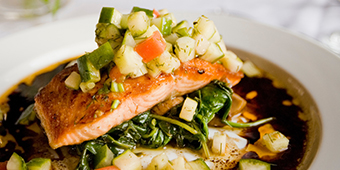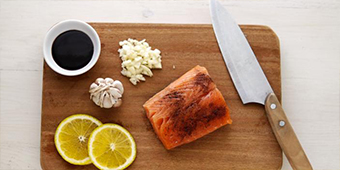Keto, Atkins? What’s the Best Diet for People with Diabetes?

Carbohydrates turn into sugar when digested. Fruit and fruit-products contain sugar. Both food groups are areas of concern for people with diabetes who must be careful to monitor their sugar intake. It is because of this that the American Diabetes Association encourages people with diabetes to consider a low-carb way of eating.
Both keto and Atkins diets are low in carbs and focus on lean protein and vegetables.
Recent studies have found that low-carb diets were successful in lowering blood sugar for people with type 1 diabetes. Researchers found those in the study had excellent glucose control.
In addition, there is a lot of anecdotal information about the Atkins program and how it has helped people better control their blood sugar.
Both diets reduce carbs, which is how they are able to control blood sugar. However, as with any new diet, it is important to talk to your doctor first.
“We encourage clients to focus on healthy foods and how they feel after eating. In addition, they should talk to a doctor or care provider before changing their meal planning,” said Arlene Feleccia. “We talk to our patients about healthy carbs, but also many of our patients have celiac disease so we do talk a lot about gluten-free options for them. A registered dietitian can help you develop an individual meal plan.”
Beebe offers Medical Nutrition Therapy for obesity and weight loss, for those with kidney disease, and for those with diabetes. Talk to your doctor about being referred to Beebe Medical Nutrition Therapy and then call 302-645-3121 to make an appointment. In many cases nutrition therapy is covered by insurance.
Understanding What You Are Feeling
For diabetics, it is very important to control their blood sugar levels throughout the day. It can be dangerous to have blood sugar levels that fluctuate wildly. This fluctuation can cause you to feel ill or that you might pass out. It is likely caused by either hypoglycemia or hyperglycemia.
Hyperglycemia is experienced when blood sugar is very high. If you might be experiencing hyperglycemia, you should check your blood sugar level and adjust your insulin.
Signs of Hyperglycemia:
- Extreme thirst
- Unintentionally losing a lot of weight within a few weeks
- Noticeable loss of energy, muscle weakness
- Nausea and stomach ache
- Difficulty seeing, vision changes
- Poor concentration
- Confusion or drowsiness
If you are having these symptoms and are not diagnosed with diabetes, you should talk to your doctor about your symptoms. Beebe Population Health offers free blood glucose screenings at health fairs throughout Sussex County. Learn more: www.beebehealthcare.org/calendar.
If you are diagnosed with diabetes and experience hyperglycemia, drink plenty of water, go for a walk, and make sure you are taking your medication as prescribed. If your blood sugar is 300 or above twice, call your doctor immediately or seek medical attention.
Hypoglycemia is experienced when blood sugar is very low. If you might be experiencing hypoglycemia, your best course of action is to eat or drink something with some sugar in it such as orange juice or a piece of candy.
Signs of Hypoglycemia:
- Racing pulse
- Cold sweats
- Pale face
- Headache
- Feeling incredibly hungry
- Shivering, feeling weak in the knees
- Feeling restless or nervous
- Difficulty concentrating, confusion
If you experience hypoglycemia – low sugar – regularly, be sure to keep a sugar-raising product with you such as raisins, honey sticks, jelly packets, fruit juice, or milk to quickly raise your sugar levels. Low blood sugar can be extremely dangerous. If you start to experience symptoms, pull off the road or stop what you are doing, and consumer something to get your sugar back into balance.
Glucagon kits are available by prescription. Talk to your doctor or endocrinologist for a prescription. There is a new product available for hypoglycemia – a nasal spray called Baqsimi, which has been approved by the FDA.
If you are looking for an endocrinologist, Beebe Endocrinology is accepting new patients: 302-648-7999.



